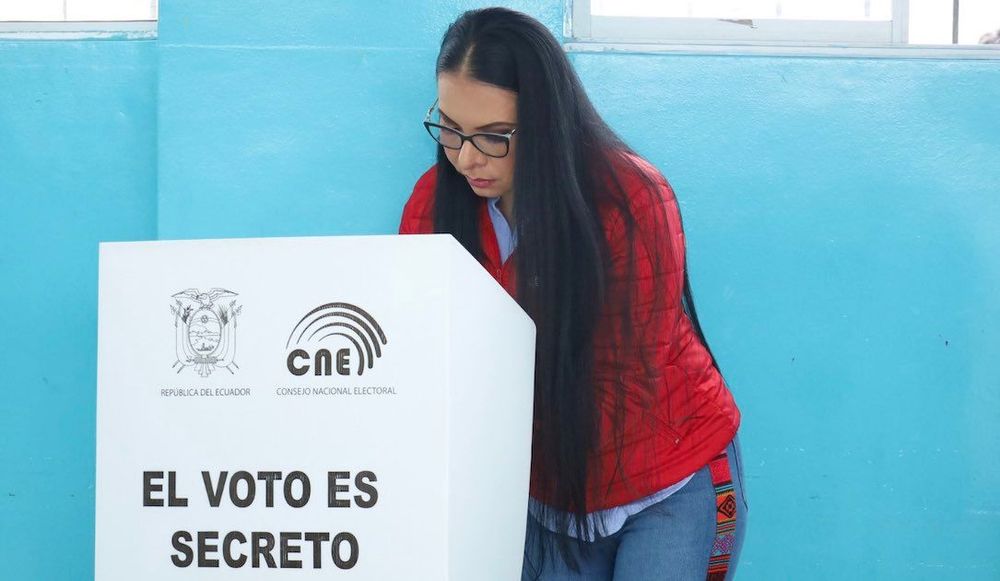Ecuador’s national election agency says cyberattacks caused absentee voting issues
Ecuador’s national election on Sunday was marred by difficulties voting online for citizens living abroad — incidents the country’s election agency attributed to cyberattacks originating from seven different countries.
On the day of the polls, absentee voters flooded social media to express their frustration at not being able to cast votes through an online system created by the government. About 120,000 Ecuadoreans living outside the country were registered to vote in the elections, and many of them were unable to access the voting system before polls closed.
El voto telematico no funciona.
— Andrei Krochin (@akrochin) August 20, 2023
El @cnegobec no responde, @DianaAtamaint no responde, las lineas de ayuda no ayudan.@AnderssonBoscan , @LaPosta_Ecu atentos! pic.twitter.com/JCArdenwZA
In a press conference on Sunday, Diana Atamaint, president of the National Electoral Council, blamed issues with telematic voting on cyberattacks, although she didn’t elaborate on their nature.
“We inform the Ecuadorian people that according to preliminary reports, the telematic voting platform suffered cyber attacks that affected the fluidity of accessing the vote,” she said. “We also clarify and emphasize that the cast votes have not been violated.” She went on to say the attacks “were identified as coming from seven countries: India, Bangladesh, Pakistan, Russia, Ukraine, Indonesia and China.”
In an interview with CNN’s Spanish-language affiliate, Atamaint said voters in Europe were especially impacted.
“Electoral authorities will analyze within the framework of the law what is appropriate to do,” she said.
The election agency did not respond to a request for comment.
As of Monday afternoon, with 80% of votes counted, left-wing candidate Luisa Gonzalez was ahead but will face the second-place challenger, Daniel Noboa, in a runoff in October.
Presidential candidate Fernando Villavicencio was assassinated during a campaign event in Quito earlier this month, raising alarms about the state of democracy in the country. Voting appears to have gone smoothly at the local level, but problems with the overseas voting system aroused anger and suspicion among the diaspora.
In one video posted to social media, a demonstration of Ecuadoreans in Madrid denounced their inability to cast votes.
URGENTE | Elecciones en Ecuador: En Madrid DENUNCIAN problemas con el voto TELEMÁTICO, la mayoría de votantes no han podido ejercer su derecho al voto. pic.twitter.com/f86oTE4wKM
— A. Armando Balabarca R. (@scorpioalbaro) August 20, 2023
James Reddick
has worked as a journalist around the world, including in Lebanon and in Cambodia, where he was Deputy Managing Editor of The Phnom Penh Post. He is also a radio and podcast producer for outlets like Snap Judgment.


